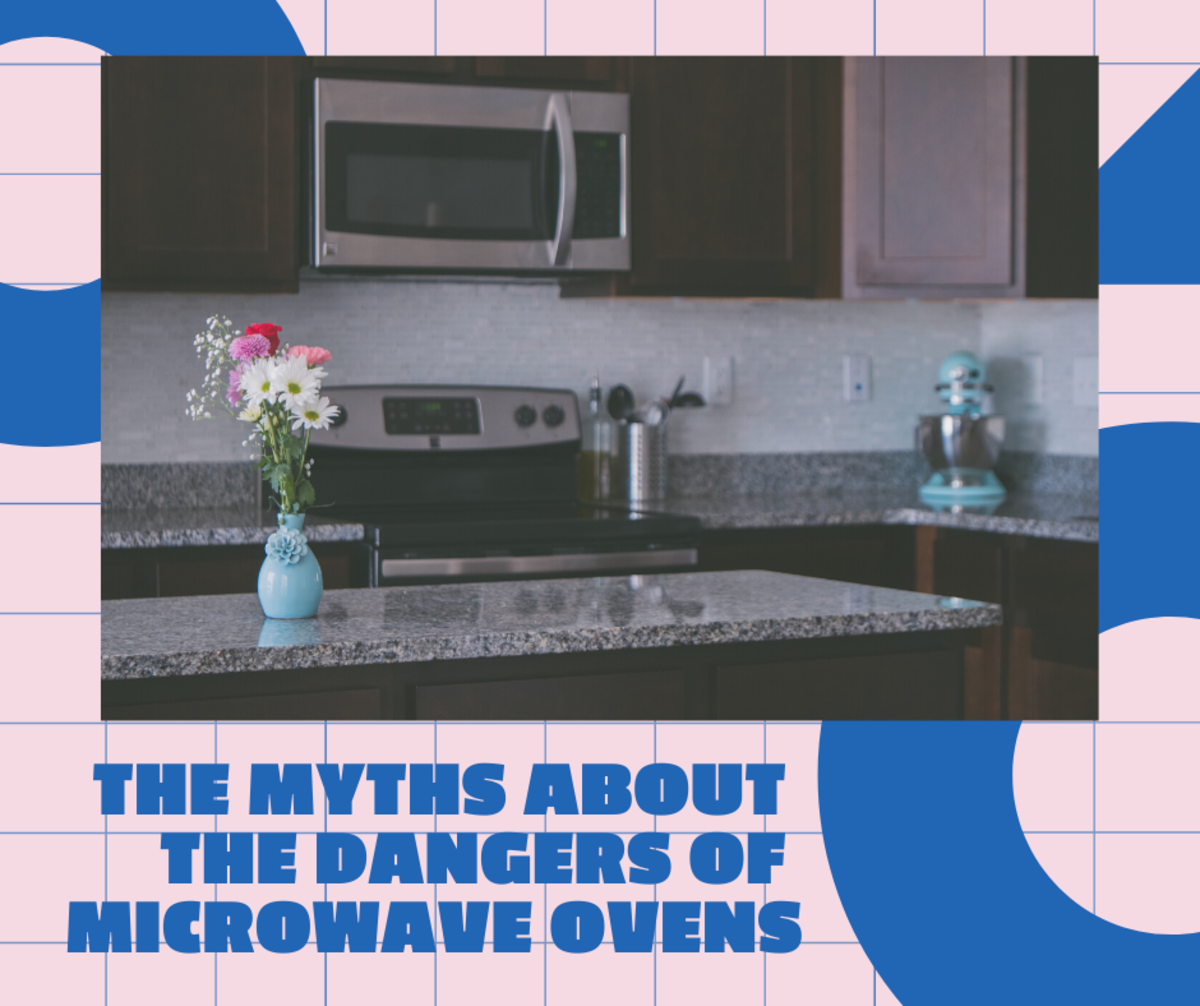Online Security: Truth or Fiction?
Update:
This article speaks to some extremely serious privacy violations at Facebook.
The concern was real when I first wrote this article, and with the recent developments which have been all over the news in March and April of 2018, the concern now is even more urgent.
Mark Zuckerberg, the CEO and founder of the behemoth that Facebook has become, is finding himself under congressional scrutiny for the role the site played, however inadvertently he may claim, in the alleged Russian interference in our 2016 elections.
Apparently, the firm, Cambridge Analytica, used 'fun quizzes' about personality traits; who was your 'best friend' on Facebook; what century you should have lived in, and so forth, to mine user's personal data for political use and gain.
Never again will I click or or participate in any quiz on that site!
Big Brother
Have you ever read the George Orwell novel,Nineteen Eighty-Four? Published in 1949, it is responsible for the term "Big Brother," meaning governmental snoops. He was looking ahead into an imagined future, the title of the book being the supposed year when society would be transformed to this dark and restricted concept of life.
The book's theme also gave rise to the use of the author's name to describe this dystopian type of society: "Orwellian."
We've already suffered plenty of erosions of our liberties, at the hands of politicians playing on fears, whether real or imagined, with such things as the so-called "Patriot Act."
I've been saying for many years, "George Orwell was right: he just got the year wrong."
I did not make any of this up: it was first revealed in a very detailed article back in 2012, in Consumer Reports; a very reputable magazine that offers objective analysis of consumer goods and services. Since they are subscription based and do not accept advertising, this maintains their objectivity. Since the world is changing rapidly, 'goods and services' now also include the virtual world of on-line interactions.
Where Are These Threats?
Actually, the privacy and security threats are all over on the internet.
Despite many security programs and protocols, the truth is, anything you do online is pretty much wide open to anyone who cares to invest the time to break through any security. Various miscreants have hacked the security firewalls at banks, department stores, even the Pentagon and NASA. I don't do my banking or bill-paying online; I still use "snail mail."
But the one type of location at which you should feel relatively safe and secure from such threats as identity theft and spying are the ones designed to let you maintain contact with people you know and are related to.
None of this even touches the 'deep Web' or the 'Dark Web,' the domain of government snoops and spies, and anyone truly bent on evil. You cannot just go there and find out what's lurking below the surface. You should not even try,
It's Just So You Can Have Fun, Right?
True enough, Facebook offers many things to do, both useful and recreational. Third-party applications abound, and all of it is free of charge to use. Well, you are not charged money, but the real charge is a tradeoff of your rights to privacy, and sometimes obnoxious pop-up ads in your face when you are trying to play a game.
Just try and read through the privacy and terms of use statement. It is written in such convoluted legalese that had even the Consumer Reports lawyers shaking their heads at how deliberately obscure and difficult to understand it all was. Most people don't bother to read any of those statements anyway, when signing up to use a site--they just say, "yeah, yeah, yeah. Standard legalistic BS ...whatever,..." then they scroll to the bottom and click on the 'accept' icon.
What have they signed away? Courts have ruled that typing in your name, clicking on an 'accept the terms' button is as legally valid as your signature on a piece of paper. You've just told them that they can do whatever they want with your information!
Cookies You Can't Eat, But No Candy
A virus protection program watches for malicious software intended to harm your computer. Cookies are a whole other matter. Every site you visit regularly places these little bits of code into your computer. Yes, Hub Pages does it too. A cookie remembers things like your IP address, your login information, and if you ask it to, your passwords.
If you have ever tried to get into something like your bank account or e-mail from someone else's computer, you've no doubt come across a security check asking that you veryify yourself as the person you are claiming to be. That's because your cookies don't exist on that other computer, so the site needs to veryify your information.That much is for your own safety and protection.
Annoyingly, you'll also come across this verification process on many sites, such as your bank, from your own computer after you've cleared your cache; a maintenance and smoother-running-system operation that should be done weekly, at a minimum, along with backing up your data.
It Gets Worse...
However, there are also other types of software similar to cookies that have a much darker purpose. They are called spyware, and they "mine" the information on your computer. They snoop your e-mail contacts list; they monitor all the sites you visit, however briefly.
So, suppose one of those annoying 'hover-over' ads pops up, and you accidentally find yourselves on a porn site--yep--it records that as well, even though you would never go there on purpose!
If you are researching information on a health issue, that, too is duly recorded. Do you ever wonder about some of those disgusting spammy e-mails? They probably originated from such spyware. They may take a look at your research for a 'very personal' type of health problem, and 'translate' it to its porn cousin, and bingo! You're slammed with spam!
Some of the really nasty types also log your every keystroke. These are especially dangerous, because they can easily steal your passwords to everything you use online.
Not Very Social, Now, Is It?
Since this corporation originated back in 2004, it has grown into a behemoth mowing down, partnering with, or taking over everything it has encountered, or so it seems.
The availability is worldwide, but the largest problems are right here at home in the "good ol' U.S. of A." According to the Consumer Reporsts article, it seems the Europeans have better laws concerning privacy online than we do!
Our laws for health and financial privacy are very good: even to the point of becoming an annoyance to those the laws are intended to protect. But our privacy online is virtually non-existent.
Every single photo you share and page you "like" is recorded, and dumped into a vast storage server. Just as with the difference between "impressions" and "clicks" on ads, these "likes" and "recommendations" buttons found on other pages and sites are reported back to Facebook whenever you visit the page containing the button--whether or not you click the button, and whether or not you, yourself are logged into Facebook!
They are even able to snoop your computer to find photos you did not upload or wish to distribute publicly in any way.
Their famous "tagging" utility for pictures uses facial-recognition software like the government uses to ID suspected terrorists or other criminals. In fact, I'm given to understand that the goverment has actually used Facebook for this very purpose; to find people. Talk about an invasion of privacy!
Watch Your Back
It has become more-or-less common knowledge by now that you should be very, very careful about what you post on any of these kinds of sites, whether it's Facebook, or the relatively newer "Instagram" or "Snapchat," collectively known as "social media" sites. A good many employers are now looking into people's posts on such pages to determine whether or not the canididate is suitable for hiring.
Personally, I do not think that is a legitimate use of such websites--what people do in their "off" or personal time is really none of an employer's business, provided it does not affect that person's ability to perform the job for which they were hired.
What is really scary, though, is that Facebook and its software is able to track the interests and movements across the internet of people who are not even site members! This is where things get "Big Brother-ish." Shades of the NSA!
Like to chill with some games? Go ahead. There are plenty of them! But before you play, pay attention to what that game is asking for in order to allow you to play! It may want permission to make posts on your behalf; it may want to mine your friend list to see who those people are; it may want to access your e-mail as well, to mine those contacts. Most of the games do have the option of turning off access to irrelevant data; some do not. A good many people, I suspect, don't even read that screen, but just click through to play the game. Is it worth it? There is really no good reason a game needs all that to work. Not one iota of that personal information is needed for the game to function. All it is, is spying, pure and simple.
Privacy Protections Are Available
Yes, Facebook has many levels of privacy protection for you to use. Unfortunately, none of it operates globally, which is to say, your selections do not apply across the board to your entire account and everything you do while on the site.
Instead, you must use several different ways to allow or block certain posts; activities; people; "tagging;" who sees what; and so forth. Is it made this convoluted on purpose, in the hopes the user will get fed up and not bother? I don't know; but it often feels that way.
The Consumer Reports article referenced and linked to earlier in this article does include a video tutorial on using these various privacy tools. The fact that a video is even necessary is, in this writer's opinion, cause for concern.
© 2012 Liz Elias








